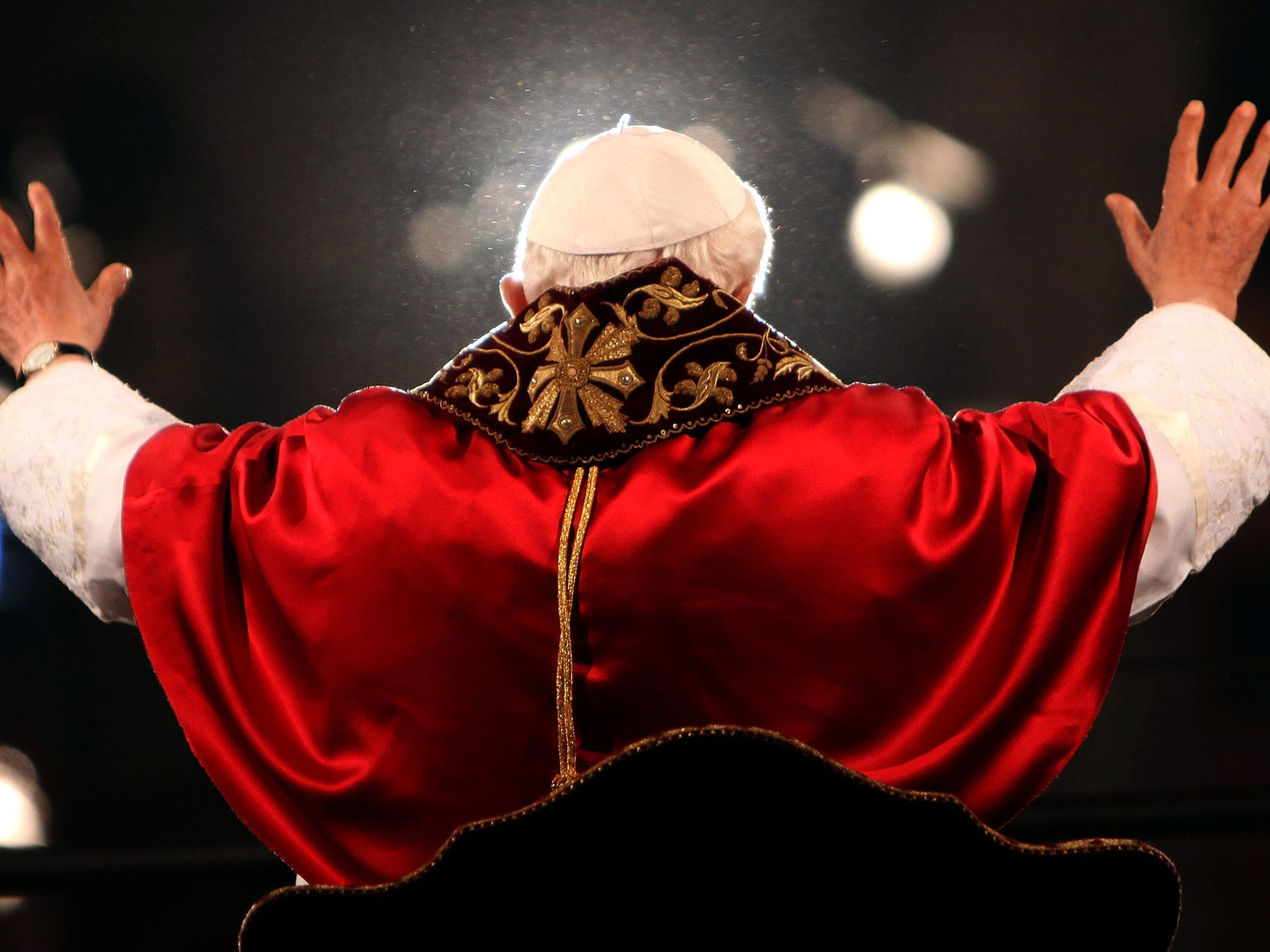First the Pope resigns, and now Cardinal Keith O'Brien too - The Catholic Church's leadership has been tarnished as never before in its history
A memo to the Vatican: if you may resign, you may also be forced to go.


Today is Pope Benedict’s last day in office, but the words customarily used to announce that we have a new pope, “Habemus Papam”, are likely to be a long time in coming. For much has changed in a short space of time. The forced resignation this week of Cardinal Keith O’Brien as Archbishop of St Andrews and Edinburgh demonstrates the intensity of the events through which the Roman Catholic Church is passing. The College of Cardinals that will shortly assemble to make the choice has a difficult task.
One characteristic of the papacy that will be hard to maintain is the dogma of papal infallibility. This doesn’t quite mean that whatever the pope of the day says is true by virtue of his having said it. The Vatican Council of 1870 defined it in the following terms: the pope is “possessed of infallibility” when “he defines... a doctrine concerning faith and morals to be held by the whole Church”. Once the pope has spoken, the Vatican Council agreed, his definitions “are irreformable of themselves”.
But the resignation of the Pope, an unprecedented act in modern times, makes the notion of infallibility appear distinctly odd. Does it mean that Pope Benedict is possessed of infallibility today but not tomorrow when he begins his retirement? No wonder the Church delayed many centuries before clothing the idea in legal form.
Infallible no more
Brian Tierney, the former Professor of Medieval History at Cornell University, wrote in his book Origins of Papal Infallibility (1972) that “there is no convincing evidence that papal infallibility formed any part of the theological or canonical tradition of the Church before the thirteenth century… only after much initial reluctance, it was accepted by the papacy because it suited the convenience of the popes to accept it”. By convenience, by the way, is meant the desire to form a bulwark against the march of liberalism. This dogma will surely now wither into disuse.
Nor can the office of pope any longer be considered to be one that is held on appointment for the rest of one’s life. The tradition cannot be re-established. Along with the undermining of the dogma of infallibility, this change further weakens the authority of future popes. For, if you may resign, you may also be forced to go.
These two developments should mean that the power of the cardinals, as opposed to the pope, would thereby increase. But at a time of momentous change, the cardinals themselves are subject to widespread criticism. Following their mishandling of sexual misbehaviour by their clergy, and the doubtful nature of some of their own practices, a number of them are no longer regarded as “fit and proper” persons. The fate of Cardinal O’Brien has freshly reinforced this sceptical view. The Church’s leadership has been tarnished as never before in its entire history.
So, paradoxically, although the election of a new pope is likely to be a lengthy process, one of the key moments will come very early. By tradition, the cardinals hear two sermons in quick succession before they can proceed to electing a new pope. These sermons analyse the state of the Church and suggest what qualities are needed in its new leader.
Sluggish
Indeed, what the cardinals have to do swiftly is decide what reforms they can accept and then identify the right man to carry them out. Except that Church leaders have little taste for acting swiftly and decisively. Faced with a difficulty, they naturally first turn to scripture to seek inspiration. Then, having come to some conclusions, they inevitably find that what might work well in one part of the Church won’t gain any traction in another. The African, European and North American branches have very different traditions and ways of acting. So normally at this point, a paralysis of decision-making would set in and the problem would be shelved for another half century or so. This time, though, the cardinals have only weeks in which to reach conclusions that will almost certainly be of historic importance.
There is one reform, however, to which the cardinals could use this extraordinary moment to give some prominence. That is whether it is right to persist with the discipline of clerical celibacy. The rule goes back to 1139 when all clerical marriages were declared not only unlawful but also invalid. Its wisdom has been increasingly doubted. Even Pope Benedict as a young German theologian 40 years ago joined eight others in calling for a new discussion of celibacy. And Cardinal O’Brien told the BBC just before he resigned that he felt it would be within the scope of the next Pope to rethink the rules.
Without a bold reform of this nature, the new pope will find it hard to hold the Church together. Remember the nightmare described in the excellent Italian film Habemus Papam, made by Nanni Moretti in 2011 and shown in this country. In the final scene, the newly elected pope comes out on to the balcony overlooking St Peter’s Square and declares that “I am not the new leader you need”, and retreats back into the Vatican.

Join our commenting forum
Join thought-provoking conversations, follow other Independent readers and see their replies